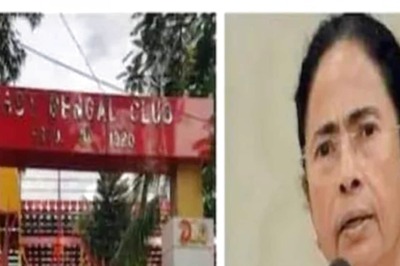
views
By Brotin Banerjee
While the government is trying to provide the requisite stability to the economy, it now needs to focus on strengthening the real estate sector. This is important in view of the fact that construction sector is the second largest employer next only to agriculture, and growth in the sector has a direct impact on ancillary industries such as steel and cement, creating a ripple effect in the market and help in giving a push to the economy.
Having said that, we strongly feel the need for setting up of a real estate regulator to ensure fair play and transparency in the industry and protection of consumer interests. The main idea behind having a regulator is to create a level-playing field.
Also, with so much being talked about carbon emissions and concrete jungles, the way forward for the real estate industry is being environmentally conscious. Currently the real estate sector contributes to more than 5 per cent of global carbon emissions.
In order to address this utmost important issue about carbon emissions faced by the globe, there is a strong need to encourage developers to build green and sustainable projects.
Our government should provide appropriate subsidies to the builders and help in lowering carbon emissions. On the other hand the consumers should also be given reduction in stamp duty for opting for green development.
We also believe that integrated townships are the way forward for Indian developers as it immensely helps to reduce the pressure on city infrastructure. The appeal of integrated townships lies in the fact that it puts affordability, convenience, and focus on lifestyle in one very attractive package.
Also in order to meet the demand and need for facilitating MIG/LIG housing, and thereby the requirement of decongestion of cities, there is a need to extend tax holiday under section 80IB for integrated township development project as infrastructure project (development of township project with over 20 acres of land out of city limits with development of at least 50% of the FSI area as affordable housing with area less than 950 Sq Ft).
This section gives tax relief to the builders for construction of integrated townships and thereby contributing to development of infrastructure around the metros and tier 1 cities, thus reducing the demand and supply gap for affordable housing.
Some of other initiatives which could benefit the developers as well the end consumers would be lowering & standardization of stamp duty across the country as well as reducing transaction burden. The introduction of unified taxation system across all states will also help to incentivize more consumers for home ownership.
The author is MD and CEO of Tata Housing Development Co




















Comments
0 comment